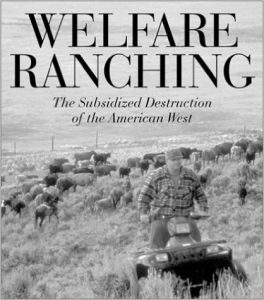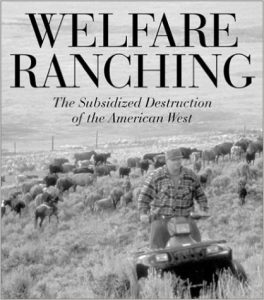Protect The Wolves® Found this interesting tidbit 😉
Grazing Permit
A grazing permit is similar to a crop lease but is different in some aspects. Where a lease creates an interest in land, called a leasehold, a grazing permit by statute does not create a right, title, interest, or estate in the public lands and is only a license to use the public lands. The government may withdraw this license at any time without compensation, except in limited situations where compensation may be required. A grazing permit holder may have a right to compensation when the permit is fully or partially canceled in order to use the public land for another purpose.
The Bureau of Land Management and the U.S. Forest Service administer grazing permits on federally owned public lands. If the state has public lands available for grazing, the permits are administered by the appropriate state agency. The permits establish the requirements of the private party to use the public lands for grazing and operate under the traditional “first come, first serve” method. In order to get a grazing permit, a private party must first own or lease base property or a private ranch. Base property is private land near the area to be grazed and is not easy to acquire. The term of the permit is statutorily set at ten years. The private party must pay a grazing fee that is based on a 1966 base value of 1.23 per animal unit month (AUM) and then adjusted based on current private grazing land lease rates, beef cattle prices, and the cost of livestock production. The fee cannot drop below $1.35 per AUM according to a Presidential Executive Order issued in 1986 by President Reagan.
Besides the Taylor Grazing Act of 1934, public lands grazing is controlled by the National Environmental Policy Act of 1969, the Endangered Species Act of 1973, the Federal Land Policy and Management Act of 1976, and the Public Rangelands Improvement Act of 1978. For many years, environmental groups have challenged the issuance and renewal of grazing permits, making renewal of many grazing permits more difficult. For information pertaining to these statutes and the environmental issues, please visit the Environmental Law Reading Room.
Source: Agricultural Leases Overview – National Agricultural Law Center

